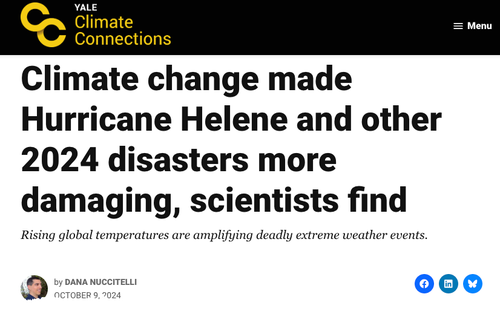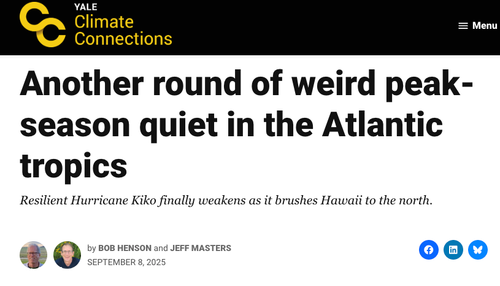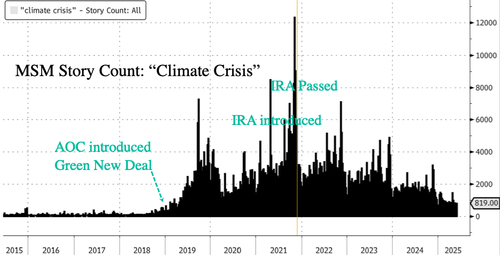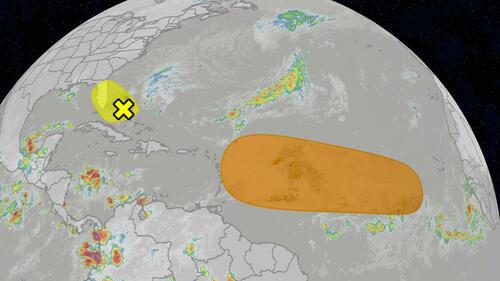
After Quiet Hurricane Season Peak, Meteorologists Monitor New Development In Atlantic Basin
Last year, the global-warming alarmists at Yale Climate Connections were once again citing research claiming that „human-caused climate change made many recent extreme weather events far more damaging.”

A year late, Yale Climate Connections journalists are glitching because they can’t explain „Another round of weird peak-season quiet in the Atlantic tropics.”

So what changed over the past year? Did global warming suddenly evaporate, or did the funding to push the narrative dry up?
But only time will tell if these progressive Ivy League elites, operating under the Yale Program on Climate Change Communication, within the Yale School of the Environment, are right about human-caused climate change dooming the planet.
After all, Democrats have pushed narratives that span everything from cow farts and Taylor Swift’s private jet to gas stoves, 2-stroke dirt bikes, and petrol-powered cars that present immediate doom to the planet.
Why? Because Democrats used climate propaganda as cover for the biggest heist on the U.S. Treasury …

Remember:
- „Gold Bars Off The Titanic”: After Trump Victory, Biden EPA Scrambled To Funnel $20 Billion Taxpayer Funds Into 'Green’ NGOs
Much of their credibility has been staked on pushing immediate 'climate doom porn’ – using Greta Thunberg as a puppet – insisting that unless we pay more climate taxes, drive more EVs, and destabilize the grid with intermittent solar and wind, the world is literally toast.
However, let’s return to the topic of the quiet hurricane season that has perplexed climate alarmists.
Last month, Ernesto Rodríguez, meteorologist in charge of the National Weather Service forecast office in San Juan, Puerto Rico, said that it was only the second time that no named storms had formed during the peak of the Atlantic hurricane season since modern record-keeping began in 1950.
„Usually, conditions during this period are prime,” Rodríguez said around mid-September. The quietest peak was recorded in 1992, after Hurricane Andrew devastated Florida.
But, we’re not out of the woods yet, and perhaps the next tropical wave in the Atlantic Basin will provide climate doomers with some cover and generate climate propaganda in corporate media outlets. We do miss the days when climate alarmists told us the world would burn to a crisp by 2023 (read here). Yet here we are, still sitting on the Bloomberg Terminal, penning this weather note while eating a burger.

So here is what The Weather Channel’s meteorologists are focusing on ahead of next week: „The National Hurricane Center has increased the odds to a medium chance of development for a tropical wave coming off the coast of Africa.”

Keep an eye on this tropical wave, which could become a tropical storm or hurricane near the Lesser Antilles – at some point next week.
Strong signal that our next tropical wave could become a tropical storm or hurricane near the Lesser Antilles next week…
Long term, we need to keep an eye on this in case it enters the Caribbean Sea. pic.twitter.com/8hdSorDLqJ
— Max Velocity (@MaxVelocityWX) October 3, 2025
. . .
Tyler Durden
Sat, 10/04/2025 – 19:15

 2 miesięcy temu
2 miesięcy temu











